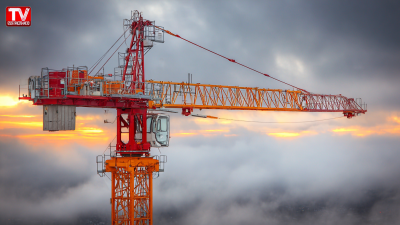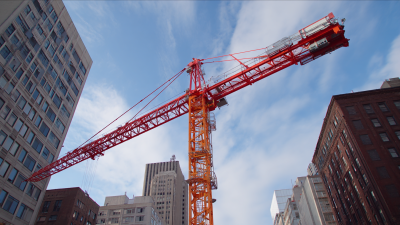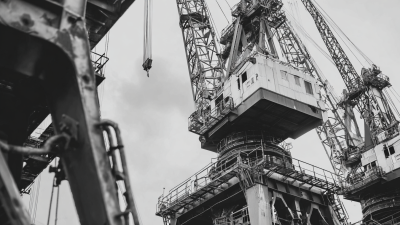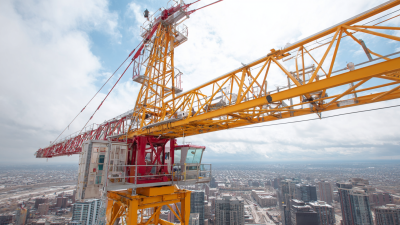In the construction industry, securing Tower Crane Jobs plays a pivotal role in ensuring not only the successful execution of projects but also the safety of workers on site. According to the Bureau of Labor Statistics, employment for crane operators, including those specialized in tower cranes, is projected to grow by 8% from 2020 to 2030, reflecting a growing demand in the sector. However, with this demand comes the imperative necessity for strict adherence to safety protocols, as the Occupational Safety and Health Administration (OSHA) reports that crane accidents account for a significant percentage of construction injuries. Thus, aspiring professionals must understand the essential qualifications and practices needed to thrive in this field. This comprehensive guide aims to equip candidates with the knowledge and skills vital for landing Tower Crane Jobs, emphasizing the importance of safety and operational excellence in advancing their careers in a competitive environment.
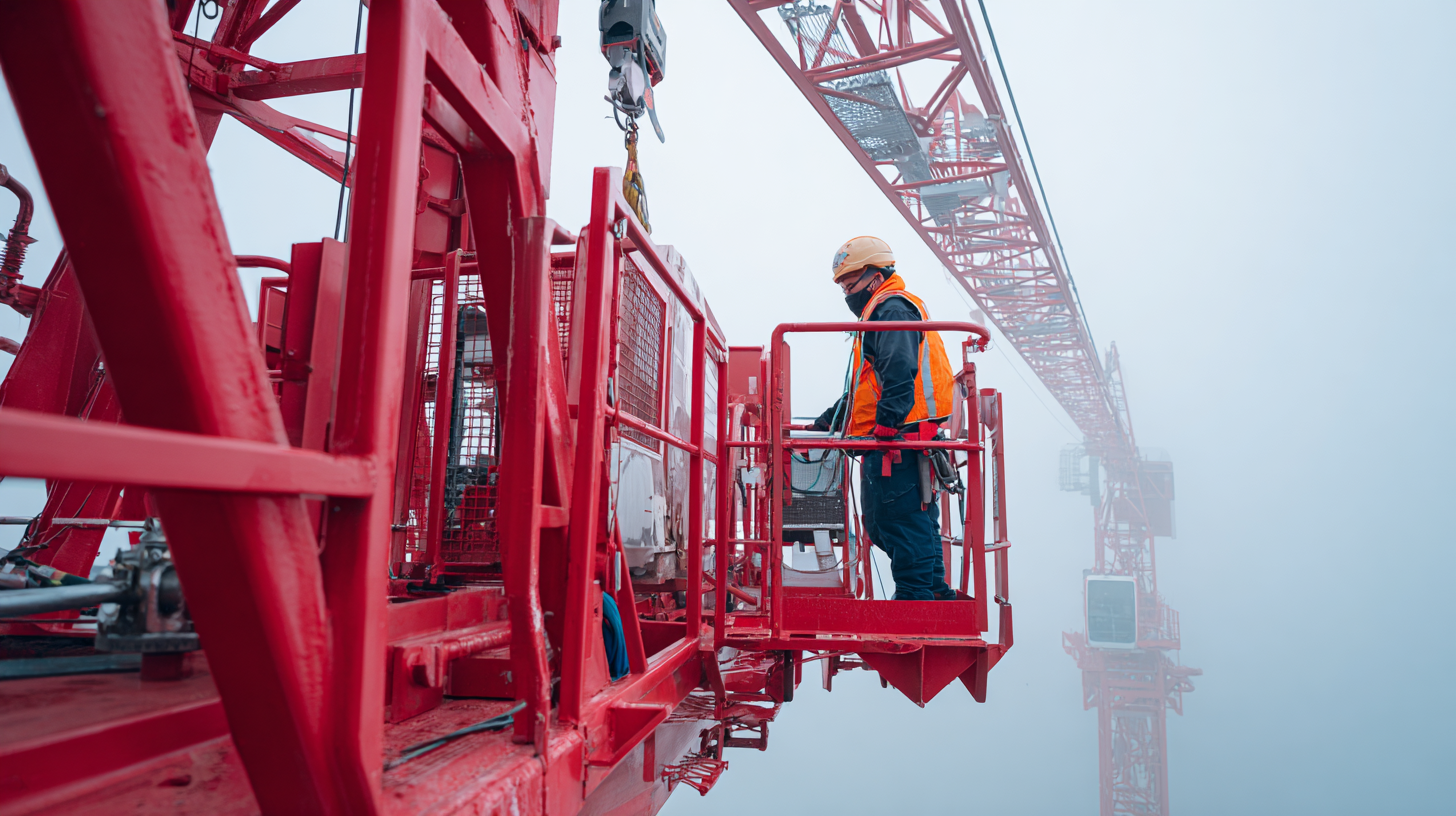
When it comes to tower crane operation, understanding the safety standards is essential for both workers and employers. With cranes being among the most hazardous equipment on construction sites, adhering to safety protocols not only protects employees but also ensures compliance with the latest regulations. Recent updates in Ontario’s crane regulations emphasize the need for meticulous installation, inspection, and documentation practices, which have been advocated since 2008. These enhancements aim to mitigate risks and promote a safer working environment.
**Tips for Safety: Always conduct a thorough pre-operation check of the crane, ensuring all safety devices are functional. Additionally, stay updated with industry-specific safety training and regulations to maintain a high level of operational knowledge.**
Moreover, programs that empower indigenous workers and provide opportunities for hands-on learning can significantly improve safety practices. Training initiatives are crucial in fostering expertise in crane operations and building a strong foundation in safety awareness. As the crane and hoist market continues to evolve, staying informed about best practices and safety standards is vital for those seeking to secure jobs in this field.
**Tips for Success: Network with experienced professionals and consider attending safety workshops to enhance your operational skills and industry knowledge.**
| Aspect | Details |
|---|---|
| Basic Requirements | Minimum age of 18, valid operator's license, and completion of safety training. |
| Training Programs | Courses offered by accredited institutions covering crane operation, safety protocols, and regulations. |
| Safety Standards | Follow OSHA and ANSI standards for crane operation to ensure safety and compliance. |
| Job Search Strategies | Networking within the industry, utilizing job boards specialized in construction, and direct applications. |
| Interview Tips | Prepare to discuss safety experiences, familiarity with equipment, and past job performance. |
| Career Advancement | Pursue additional certifications, experience in different crane types, and leadership roles. |
 To secure a job as a tower crane operator, possessing the essential qualifications and certifications is paramount. According to a report by the American National Standards Institute (ANSI), compliance with industry standards not only enhances safety but also significantly increases employability. Operators must typically hold a certification from accredited bodies such as the NCCCO, which requires passing rigorous examinations assessing both theoretical knowledge and practical skills. Statistics reveal that certified operators are 40% less likely to be involved in workplace accidents, underscoring the importance of formal training.
To secure a job as a tower crane operator, possessing the essential qualifications and certifications is paramount. According to a report by the American National Standards Institute (ANSI), compliance with industry standards not only enhances safety but also significantly increases employability. Operators must typically hold a certification from accredited bodies such as the NCCCO, which requires passing rigorous examinations assessing both theoretical knowledge and practical skills. Statistics reveal that certified operators are 40% less likely to be involved in workplace accidents, underscoring the importance of formal training.
Furthermore, employers often seek candidates who can demonstrate comprehensive safety training. The Occupational Safety and Health Administration (OSHA) emphasizes that operators should complete a minimum of 30 hours of safety training specifically focused on crane operation. This includes understanding load charts, rigging safety, and adverse weather conditions, among other critical factors. Data shows that job postings for tower crane operators frequently highlight the necessity for OSHA-compliant training, making it a vital element for aspiring operators aiming to enhance their job prospects in a competitive market.
Finding and securing tower crane job opportunities is critical in the construction industry where safety and precision are paramount. According to the Bureau of Labor Statistics, employment of crane operators is expected to grow by 8% from 2020 to 2030, indicating a steady demand for skilled professionals. To capitalize on this growth, candidates should prioritize obtaining the necessary certifications and training. The National Commission for the Certification of Crane Operators (NCCCO) provides recognized certifications that not only enhance a candidate's resume but also ensure compliance with safety standards.
Networking plays a vital role in job acquisition; getting to know industry professionals through construction trade shows, local unions, or online forums can open doors to job leads. A recent report from the Associated General Contractors of America notes that 70% of job openings are filled through referrals rather than traditional applications. Candidates should also take advantage of online platforms and industry-specific job boards that cater to crane operators, as these resources are becoming increasingly popular for both employers and job seekers. Staying updated with the latest technological advancements in crane operation can also give candidates a competitive edge, as many construction firms are looking for operators proficient in the newest equipment and software.
Ensuring safety on tower crane worksites is paramount for both workers and the success of construction projects. The complexity of tower cranes demands strict adherence to safety protocols. This begins with thorough training. All operators and crew members should complete certified crane operation training, which covers both theoretical knowledge and practical skills. Regular refresher courses help ensure that everyone is up-to-date on the latest safety standards.
Tips: Always conduct a pre-operational inspection before the crane is used. Check for any signs of wear or damage and ensure that all safety mechanisms, like emergency stop buttons and alarms, are functional. Additionally, establish a clear communication protocol among the crew. This can prevent accidents resulting from misunderstandings or lack of awareness regarding crane movements.
Another critical area is establishing a safe work zone. Adequate barriers should be placed around the crane's operational area to keep unauthorized personnel out. Use visual aids, such as signs and cones, to indicate hazardous zones. Moreover, it is vital to have designated signalers who can guide operations when visibility is compromised, ensuring that the crane operator has a clear line of communication at all times.
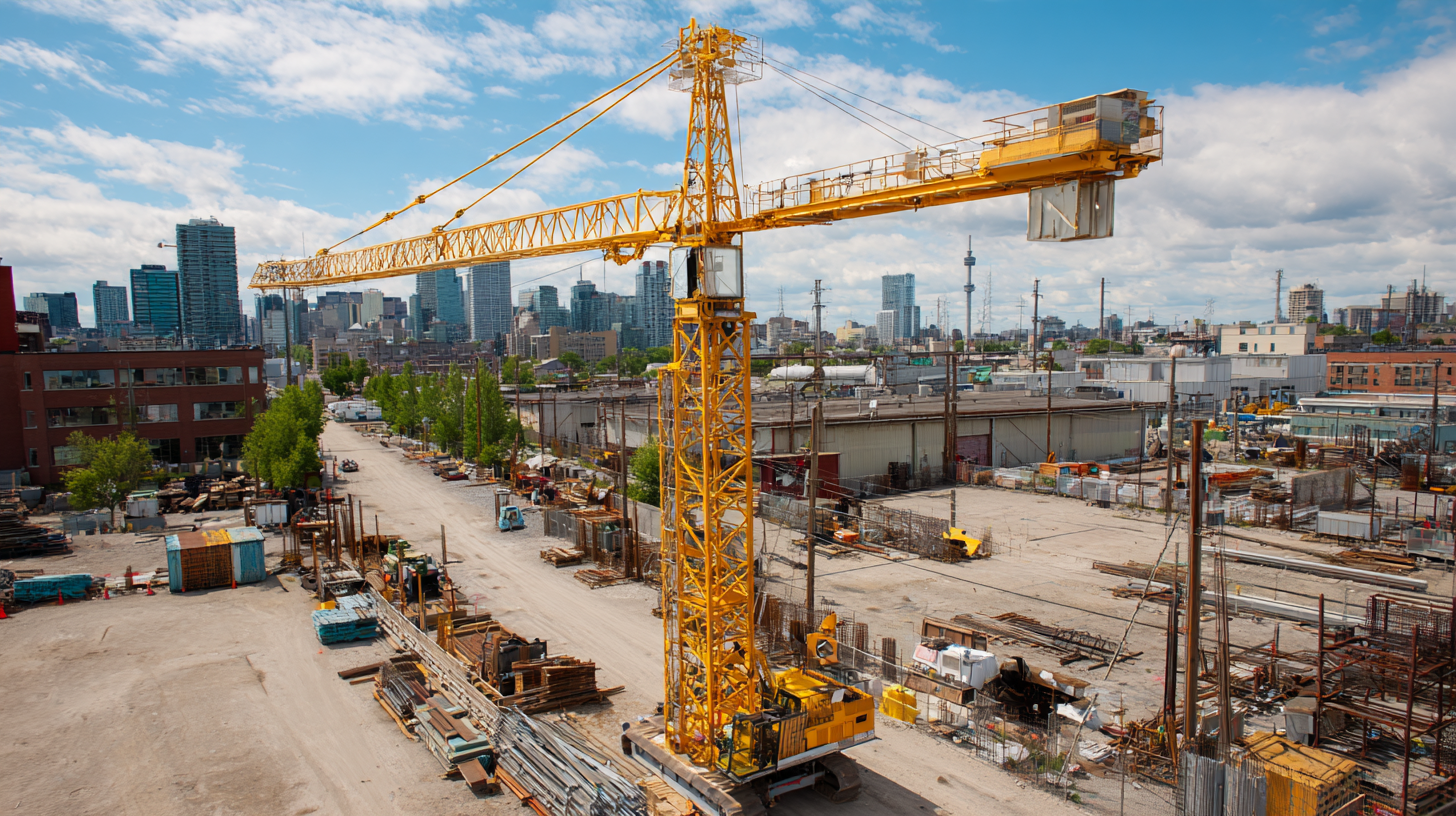
Networking and professional development are crucial for aspiring tower crane operators seeking success in a competitive industry. The significance of building professional connections cannot be overstated, as reports indicate that nearly 70% of jobs are filled through networking opportunities. Engaging with other professionals, attending industry events, and joining associations can provide valuable insights and mentorship opportunities, as highlighted by recent industry trends. For instance, the recognition of individuals like Sammy Cossairt as Tradeswoman of the Year by the National Association of Women in Construction underscores the importance of visibility and representation in the field.
Additionally, continuous learning and skills enhancement are essential for staying relevant in this evolving industry. Studies show that operators with advanced certifications can command higher salaries, often up to 15% more than their non-certified counterparts. Participating in workshops and training sessions not only sharpens technical skills but also demonstrates commitment to safety and efficiency—qualities highly valued by employers. By investing time in professional development and strategically networking, tower crane operators can significantly enhance their career prospects and contribute to a safer, more skilled workforce.


